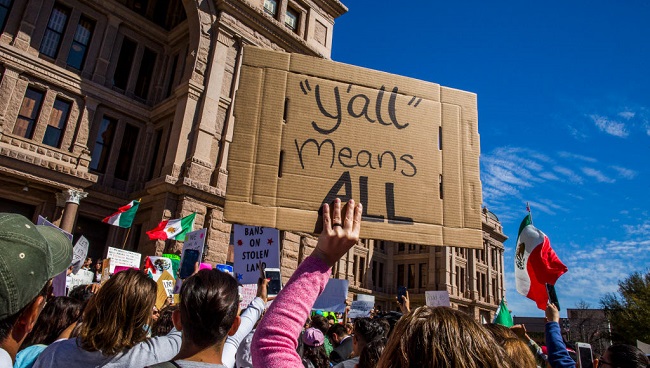
While major cities like Pittsburgh and Los Angeles push back against the Donald Trump administration’s immigration stance, which some federal courts have defended, Texas is currently facing its own battle regarding “sanctuary cities.” Gov. Greg Abbott signed Senate Bill 4 into law in early May, thereby issuing a statewide ban on those cities who refuse to cooperate with Trump immigration policies. The controversial bill’s passage resulted in massive protests at the state capitol in Austin, but it nonetheless became law. However, on Wednesday a federal judge in nearby San Antonio temporarily blocked the sanctuary cities ban on constitutional grounds.
According to the New York Times, Judge Orlando L. Garcia of the United States District Court “granted a preliminary injunction preventing the law from taking effect” while a massive lawsuit involving the Democrat-run cities of Houston, Dallas, San Antonio and Austin proceeds. “The government may disagree with certain viewpoints, but they cannot ban them just because they are inconsistent with the view that the government seeks to promote,” Garcia said in his decision, which primarily concerned the law’s provisions preventing local officials from limiting immigration enforcement. “SB 4 clearly targets and seeks to punish speakers based on their viewpoint on local immigration enforcement policy.”
Texas immediately vowed to appeal Garcia’s ruling. “U.S. Supreme Court precedent for laws similar to Texas’ law are firmly on our side,” said Abbott in a statement. “This decision will be appealed immediately and I am confident Texas’ law will be found constitutional and ultimately be upheld.” Interestingly, Garcia is a former state Democratic lawmaker who was appointed in 1994 by President Bill Clinton. The state’s appeal of his ruling, meanwhile, will send the case to New Orleans’ United States Court of Appeals for the Fifth Circuit, which the Times describes as “one of the country’s most conservative appeals panels.”
(Via New York Times)
